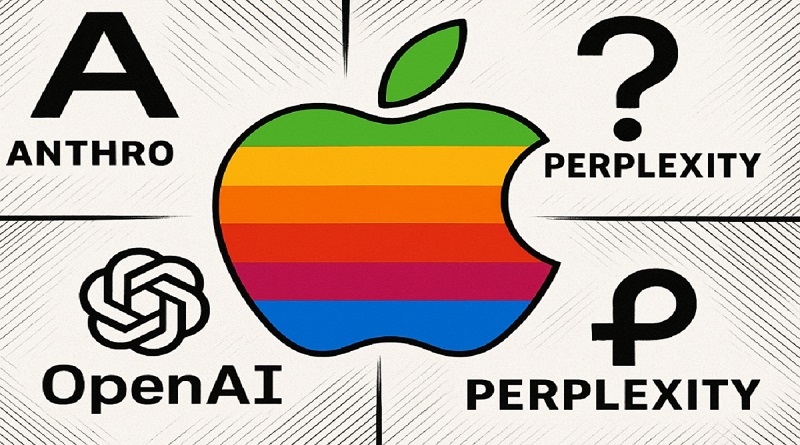Apple’s AI-Powered Safari: A Major Challenge to Google’s Search Dominance

Apple’s AI-Powered Safari: A Potential Challenge to Google’s Search Dominance
Apple is reportedly considering integrating artificial intelligence (AI) into its Safari browser, a move that could significantly disrupt Google’s longstanding dominance in the online search market, particularly among iPhone users.
AI Integration in Safari: A Strategic Shift
During an antitrust trial against Google, Apple executive Eddy Cue disclosed that the company is exploring the inclusion of AI-powered search options in Safari. This includes potential partnerships with AI-driven search providers like OpenAI’s ChatGPT and Perplexity AI. Cue noted that Safari’s search volume declined in April 2025, attributing this trend to users increasingly turning to AI tools for their search needs.
The Financial Implications for Google
Currently, Google pays Apple approximately $20 billion annually to remain the default search engine on Safari, a deal that constitutes about 36% of Google’s search advertising revenue from iOS devices. Analysts warn that if Apple shifts away from Google as the default search engine, it could have severe financial consequences for Google, as many advertisers rely heavily on its platform due to its near-monopoly in the search market.
Market Reaction and Google’s Response
The news of Apple’s potential move led to a significant drop in Alphabet’s stock price, erasing over $150 billion in market value. In response, Google emphasized its ongoing growth in search queries, including those from Apple devices, and highlighted features like voice and visual search as contributors to this growth. However, the company’s efforts to integrate AI into its search platform, such as the introduction of an “AI mode” and expansion of AI Overviews, may not be sufficient to counter the growing competition from AI-driven search alternatives.
Apple’s recent announcement about integrating AI-powered search options into Safari has significantly impacted Alphabet’s market value, highlighting the growing competition in the search industry.
In response to these developments, Google emphasized its ongoing growth in search queries, including those from Apple devices, and highlighted features like voice and visual search as contributors to this growth. However, the company’s efforts to integrate AI into its search platform, such as the introduction of an “AI mode” and expansion of AI Overviews, may not be sufficient to counter the growing competition from AI-driven search alternatives.
Google’s “AI mode,” introduced in March 2025, allows users to input complex, multi-part queries and receive comprehensive, AI-generated responses. This feature leverages Google’s advanced Gemini 2.0 model, enhancing the system’s reasoning capabilities and supporting multimodal inputs, including text, images, and voice. Initially available to Google One AI Premium subscribers in the United States, the phased rollout aims to gather user feedback and refine the feature before a broader release.
Additionally, Google has expanded its AI Overviews feature, which provides AI-generated summaries of search results. Launched globally in over 100 countries, this feature aims to offer users more intuitive and efficient search experiences.
Despite these advancements, analysts caution that Google’s current AI initiatives may not be sufficient to maintain its dominance in the face of emerging AI-driven search alternatives. The growing popularity of platforms like ChatGPT and Perplexity AI, combined with Apple’s potential integration of such technologies into Safari, poses a significant challenge to Google’s search business. As the search landscape evolves, Google’s ability to adapt and innovate will be crucial in sustaining its market position.
The Future of Search: A Shift Towards AI
As AI technology continues to evolve, traditional search engines like Google may face increasing challenges from AI-powered alternatives. The integration of AI into browsers like Safari could accelerate this shift, potentially leading to a more diversified and competitive search landscape. For users, this could mean more personalized and efficient search experiences, while advertisers may need to adapt to new platforms and technologies.
In conclusion, Apple’s exploration of AI integration in Safari represents a significant development in the tech industry, with the potential to reshape the dynamics of the online search market. As the situation unfolds, it will be crucial to monitor how both Apple and Google navigate this evolving landscape and what it means for users and advertisers alike.





